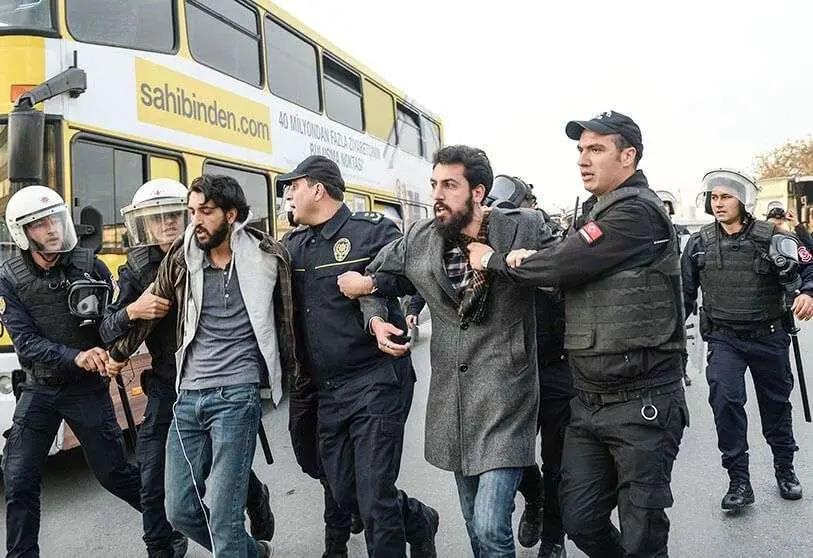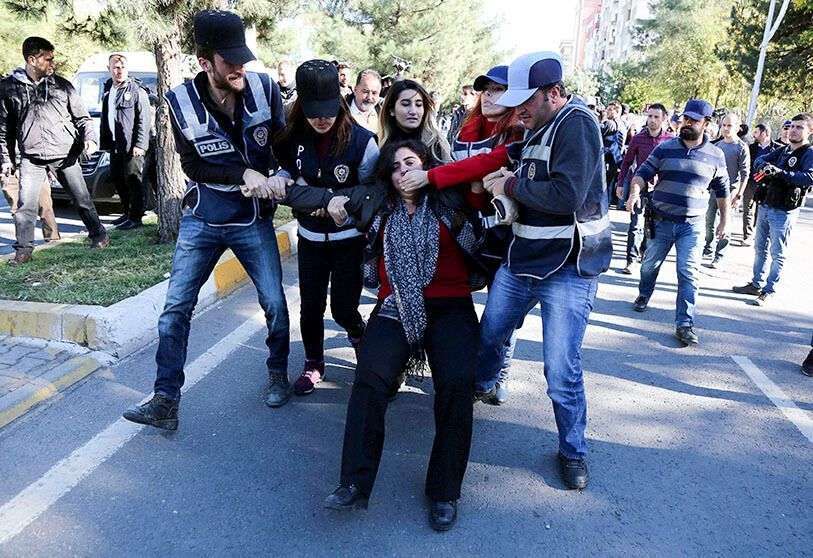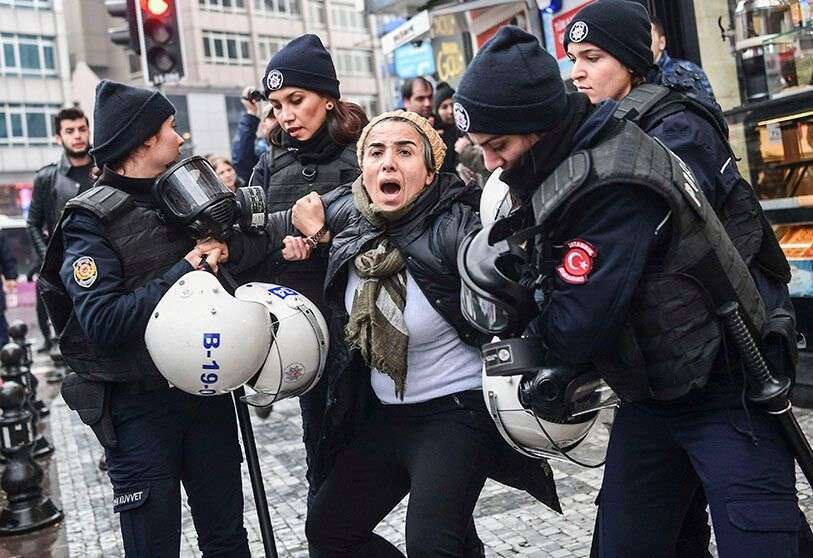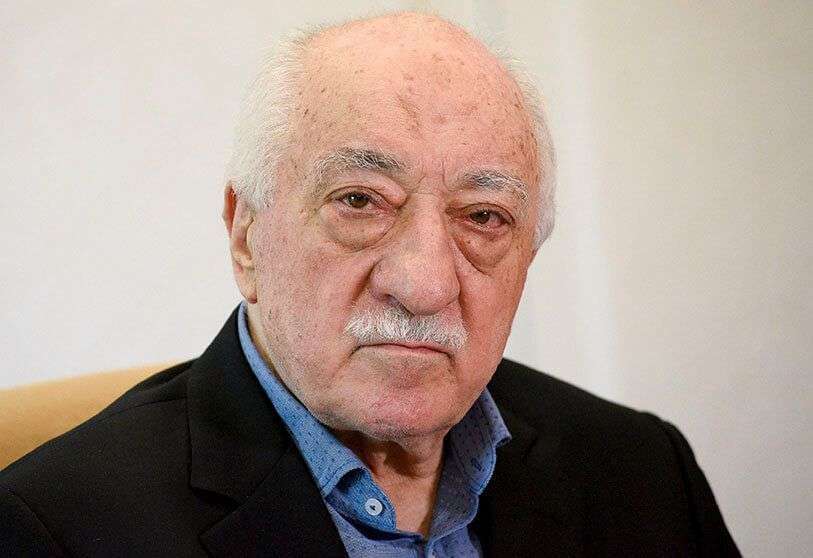Turkey arrests 24 people for criticising the government on social networks

In Turkey, criticizing Erdogan on the internet is expensive. This week, the Turkish police launched an operation to arrest 24 people accused of criticizing the ruling party AKP (Justice and Development Party) and the president of the country on social networks. According to the official news agency Anadolu, the accused are accused of having made "provocative comments on social networks" by sharing critical messages within the so-called "Anonymous movement".
This group of hackers has been attacking the Turkish government since 2011 "in a peaceful manner", they state in their press releases. Many of the attacks have not been confirmed, and on several occasions the government's arbitrary arrests are not related to the charges against them. In this case, Anadolu notes that the defendants were engaged in provoking hatred and hostility by "insulting state leaders and the elected government". Until now, freedom of expression on the Internet has not been criminalised, but at the end of August the Turkish Parliament passed a law controlling social networks.

This measure was promoted by the AKP, which has been criticised by organisations such as Reporters Without Borders and Human Rights Watch as an attack on freedom of expression. The law, which will come into force on October 1, states that social networks with more than one million users in Turkey must have a Turkish legal representative in the country. These people will be responsible for storing subscribers' data locally and deleting, at the request of a court, any message or news item deemed "offensive" by a court. The most widely used social networks in Turkey, such as Facebook and Instagram, have not yet taken a position on the measure. It is not clear how all the information will be stored and how censorship and arrests of critical users will be carried out.
Last week, 109 people, including lawyers, were arrested for alleged links to the brotherhood of Islamist cleric Fethullah Gülen, whom Ankara accuses of the 2016 coup attempt. The lawyers are accused of collaborating with the Gülen brotherhood, considered to be terrorist by Turkey, after representing clients in cases related to Gülenism. A week earlier, 41 other lawyers were arrested on the same charge.
Human Rights Watch has reported that the arrest of the lawyers undermines the right to a legal defence. "The arrests were a chilling demonstration of the Turkish government's disrespect for the rule of law and for the role of lawyers in ensuring suspects an effective defence," the organisation said in a statement.the story of Gülen and Erdogan tells of a broken friendship with many accumulated grudges, at least on the part of the Turkish leader. It turns out they were government allies in 2007 while fighting the old, nationalist, secular Kemalist establishment.

Fetullah Gülen's order comes from the current of Islamic interpretation of Said al-Nursi who advocated reform in the approach to Islam. The main pillars of Gülenist thought are the synthesis between Islam and science, the acceptance of Western democracy, the improvement of Islamic awareness by encouraging the use of reason, an acceptance of the free market and education as a means of salvation. For Said al-Nursi, a Sunni Kurdish theologian of the 19th century, the conquest of modernity was a confirmation of Koranic teachings, assuming that Islam could coexist perfectly in a changing world. So far, nothing could match Erdogan's interests more. But the peace negotiations established between the Turkish government and the militia of the Kurdistan Workers' Party (PPK) in 2012 broke this alliance. The Gülenists tried to sabotage the process by accusing high officials of the Turkish secret services as traitors.
The scale of the tension started to increase and the demonstrations on the streets confused the critics among whistle-blowers, anti-government, political, social and religious rejections. At the famous demonstration in Gezi in 2013, the security forces put too much pressure on the demonstrators on the streets of Istanbul. They were protesting against the entry of bulldozers into a park that they were supposed to turn into a shopping centre. The police repression against about forty middle class youth, who staged a sit-in to protect the park, caused three million Turks to flood the streets of 80 cities of the country against the central administration.

The cleric Gülen, who had gone into self-imposed exile in the United States, condemned the state's harsh response and targeted his organisation's supporters. Erdogan had (and still has) the feeling of being surrounded by Gülenist sympathisers who are organising a "parallel state" to his government in order to overthrow it at any moment. In 2017, government sources even admitted to having prepared lists of people in the administration who were linked to the Gülenist brotherhood. All of them have been arrested after the coup. Since the attempted coup more than 120,000 state officials have been dismissed and about 50,000 are in prison. Amnesty International, Reporters Without Borders and Human Rights Watch have reported thousands of arbitrary arrests and expulsions from the country. These decisions focus not only on Turkish citizens but also on foreign nationals who live, work and study in the Anatolian country.
Spanish journalist Beatriz Yubero was expelled in 2015 while studying for a master's degree, accused of belonging to the Gülenista association, with which she had no ties. "They came to get me at home, made me sign a paper admitting that (I) was a threat to the nation and deported me to Spain without letting me get my things. This is one of the millions of examples that show that Erdogan is fighting a battle against freedom of expression. "If I refused to sign, they assured me that I would be sent to a detention centre on the border with Syria," the journalist explained. She will never be able to return to the country and her studies have been paralysed forever.








